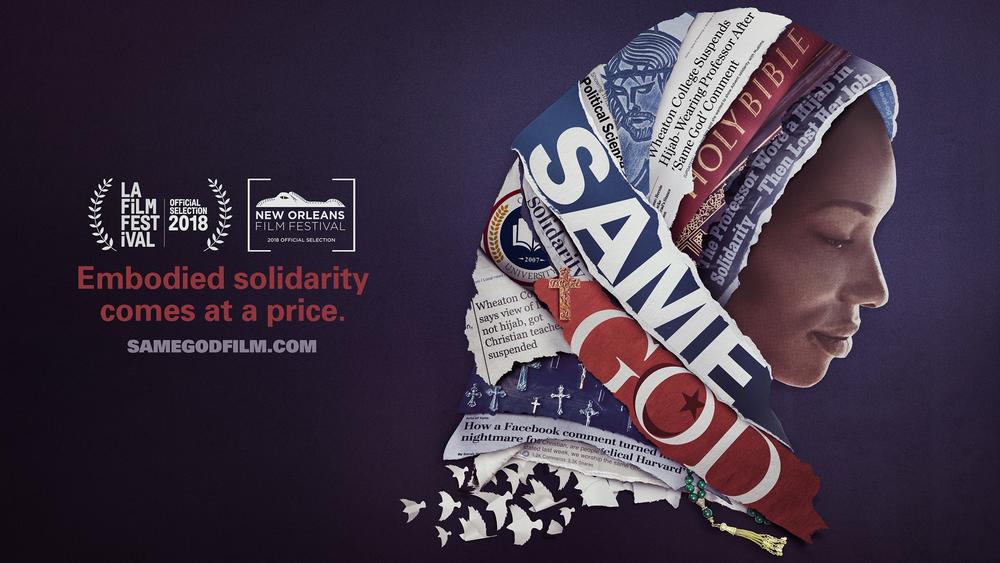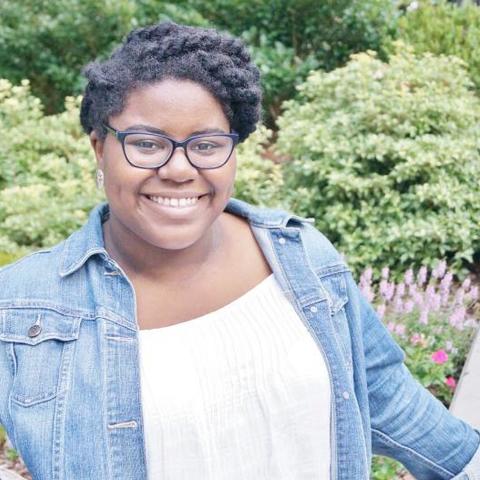Section Branding
Header Content
3 Panelists Talk Religion, Race During Virtual ‘Same God’ Discussion
Primary Content
As coronavirus halts plans and gatherings, three people behind the documentary Same God hosted a talk-back discussion on Sunday Cinema in lieu of an Atlanta screening on Sunday to talk about faith, history and identity in the throes of a pandemic.
Dr. Larycia Hawkins was an African American associate political science professor at Wheaton College — an evangelical college in Wheaton, Illinois, — in 2015, amidst the politically-charged social climate as the U.S. was anticipating a new president.
As conversations about Muslims became more discriminatory in the media and in her environment, Hawkins wanted to show solidarity with Muslim people by wearing a hijab.
“If Muslims don’t have religious liberty to practice their faith in purity and in peace, then neither do Christians,” Hawkins said in the 2018 film trailer.
In her hijab, Hawkins posted on Facebook: “I love my Muslim neighbor because s/he deserves love by virtue of her/his human dignity….we worship the Same God.”
Backlash in both public and private spaces ensued and she was eventually fired from Wheaton College. Hawkins’ actions still spark dialogue about religious freedom, democracy and politics to this day.
The documentary’s director and Wheaton alumna Linda Midgett followed Hawkins' story since 2015 and was happy to tackle Hawkins’ perspective through film. As she worked alongside Hawkins for the documentary, she recalled the story being like a thriller.
“The thing that really eventually was very clear to me that was striking was the polarization that was happening within alumni and then within the larger evangelical community over what Larycia had done,” she said.
Rev. Dr. David Gushee, now a Christian ethics professor at Mercer University, was a columnist for Religious News Service when he caught wind of what was happening on Wheaton’s campus. He immediately knew it was an important story.
“I had a bad feeling that this was not going to end well and that it had nothing to do with theology [and] that it had to do with race and it had to do with whiteness,” he said. “It had to do with conservative white backlash at that period and how conservative white backlash has become the defining characteristic of white evangelicalism.”
Hawkins said the documentary captured the arc of historical evangelicalism, or religious doctrine that abides by the New Testament’s scriptures and belief that salvation is achieved via conversion, and Christian fundamentalism, a religious doctrine that strictly abides by sacred texts (in this case, the Bible).
“I think that what was happening while I was at Wheaton College — and because I was on the front lines of the evangelical world, I could see it sooner than a lot of my friends and maybe even sooner than some folks who study it, who aren't in that world — is a coming together of fundamentalism and evangelicalism,” she said.
Hawkins is now a professor at the University of Virginia and though the heat of her stance on advocacy has died down, she believes that not much has changed in the values conscience of evangelicals, especially during the coronavirus pandemic.
“I think in this moment of the coronavirus, a moment for people of good conscience — certainly of any particular faith, tradition or religious tradition — to come together across the better angels of our nature and that's not what we're seeing in this moment,” she said. “I mean, I've heard from friends today whose parents are continuing to hold service in church services in Jesus’ name as opposed to thinking about the public good. And some of this is about individualism and grasping power.”
Watch Sunday's livestream here:
Same God is available on iTunes, Google Play and Amazon Prime video.


